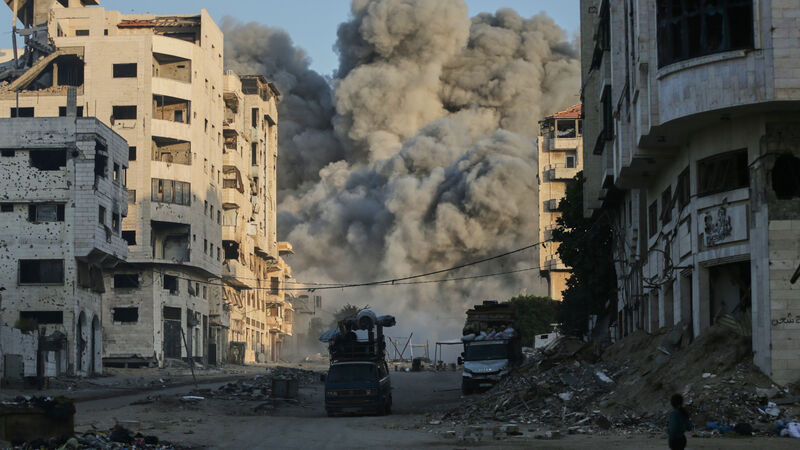Irish Examiner view: Gaza’s future in the hands of others

Smoke rises from an Israeli airstrike on the Macca Tower, a high-rise building in Gaza City, last Sunday. Picture: Yousef Al Zanoun/AP
Try from €1.50 / week
SUBSCRIBEThe peace plan announced by US president Donald Trump this week is yet another attempt to bring an end to the savagery in Gaza which has claimed tens of thousands of lives.
The plan envisages an Israeli withdrawal back to an agreed line, hostage exchanges, and Gaza being governed by a transnational organisation with both Palestinian and international representation. The last element has already been called the “Board of Peace” by Mr Trump; characteristically, he has declared himself its chairman.
Already a subscriber? Sign in
You have reached your article limit.
Annual €130 €80
Best value
Monthly €12€6 / month
Introductory offers for new customers. Annual billed once for first year. Renews at €130. Monthly initial discount (first 3 months) billed monthly, then €12 a month. Ts&Cs apply.
CONNECT WITH US TODAY
Be the first to know the latest news and updates
Newsletter
Sign up to the best reads of the week from irishexaminer.com selected just for you.
Newsletter
Keep up with stories of the day with our lunchtime news wrap and important breaking news alerts.
Newsletter
Sign up to the best reads of the week from irishexaminer.com selected just for you.
Thursday, February 12, 2026 - 6:00 PM
Thursday, February 12, 2026 - 10:00 PM
Thursday, February 12, 2026 - 10:00 PM
© Examiner Echo Group Limited